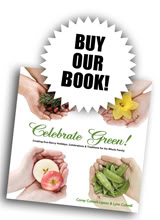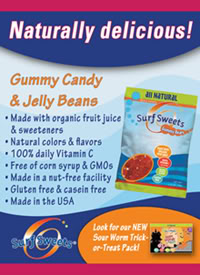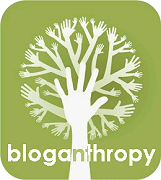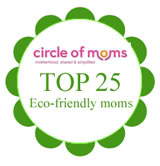Celebrating Passover, celebrating local food
Why is this night different from all other nights?
This is the first of “the four questions” asked by the youngest child at the Passover seder, celebrated by Jewish people all over the world tonight and tomorrow (March 29-30). Different, indeed: on Passover, a child sees a dinner table whose participants may be reclining on pillows, and are certainly eating matzah (unleavened bread), dipping vegetables into salt water, describing a heap of plagues, singing songs about a goat, and digging into a story of being slaves in a far-away land many years ago – and all before anyone gets to eat dinner!
The essential answer to the child’s question “why” is, Passover is a freedom celebration.
Tonight and tomorrow (March 29 and 30, 2010), Jewish families and friends will celebrate freedom with a seder. Seder means “order,” and the night unfolds in order, very much like a play unfolds in several acts.
Our story is of the Israelites, once slaves in Egypt, who escaped bondage and became a free people. The exodus story is one of miracles, plagues, and a 40 year trip through the desert. This story also highlights the Israelites’ transformation from a scattered group of individuals with an uncertain fate, into a family with a common bond – the Jewish people. At the seder, the grownups’ job is to turn the ancient exodus story into a timely message of what can be different in our lives, a freedom story that will resound for the kids and for each participant at the table.
In the Passover story, song, prose, and symbolic foods are used to explain an ancient people’s transformation from slavery to freedom. It’s also a great vehicle to ask ourselves today whether we are truly free. The ancient story wants us to consider our present enslavements, metaphorically speaking. Take the most basic consumer choice we make each day: What to eat. What constrains us in the food choices we make? For many, convenience is paramount. And yet, over-processed, excessively packaged, and/or high food mile-food can leave you feeling pretty empty.
Members of Kavana, a Jewish cooperative in Seattle, Washington, met in early spring last year to address this question head-on. The result was to start a Community-Supported Agriculture program, or CSA, in partnership with Oxbow Farm in Duvall, Washington.
Around Passover time, more than a dozen families and individuals got together to subscribe, in advance, for a 20-week season of fresh produce from Oxbow Farm. The pre-paid subscriptions allowed the farmers to plant and grow a variety of vegetables, knowing they had a committed group of customers. By early June and through October, Oxbow’s farmers delivered weekly boxes of lettuce, carrots, chard, fennel, garlic, beets, berries, tomatoes, cukes, and other delightful gems to CSA subscribers. Now the effect of the members’ early decision to subscribe paid off: The sheer joy that subscribers expressed in picking up their deliveries would rarely be duplicated in a typical trip to the supermarket! Pickup days were celebrated with Happy Hour, hosted by a CSA subscriber. Recipes were shared, kids bobbed for snow peas, barbecues were set up for vegetable grilling. One member made gazpacho for subscribers, using the items from that week’s delivery.
At Kavana, Passover marks the time for ramping up the CSA’s second season. Interest in the CSA model has doubled from the first year. The discussion has expanded, with conversations starting about incorporating vegetable gardens into one’s home landscaping, and other sustainable food practices, including procuring locally sourced, organic meat. At Passover the youngest child asks, “What makes this night different from all other nights?” As we move through Spring, perhaps a worthwhile question for all of us might be, “What will make this growing season different from all other seasons?” For some, maybe the answer will be to join a local CSA.
Thanks to Michelle Ein, Kavana Cooperative Partner and CSA coordinator, who wrote this guest post.
More on a sustainable Passover
Are there ways in which you are making your Passover more eco-friendly? Let us know in the comment section.

























